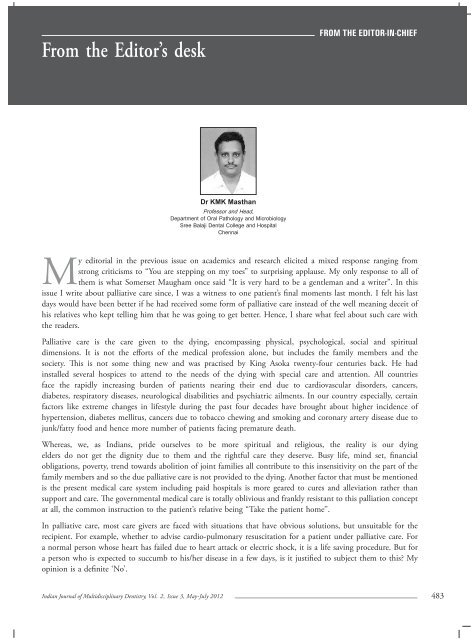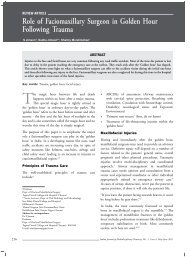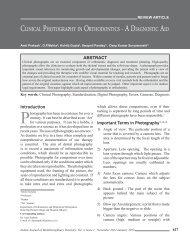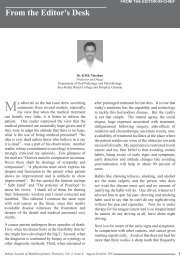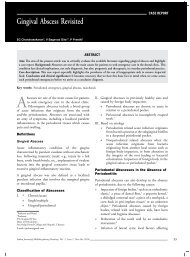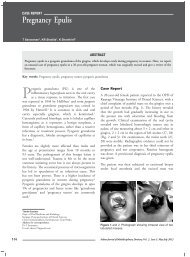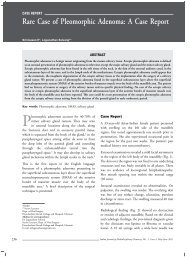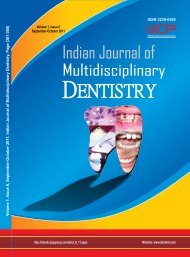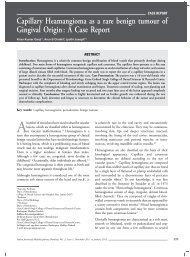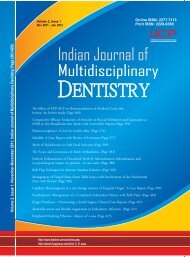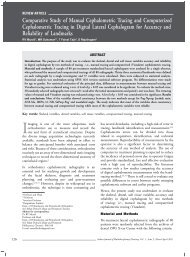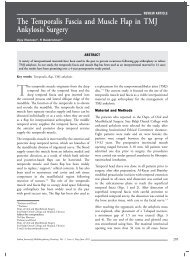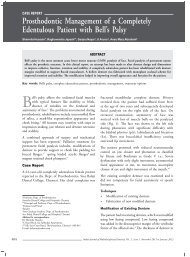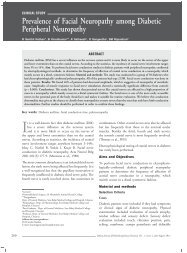Volume 2 - Issue 3 (May-Jul)
Volume 2 - Issue 3 (May-Jul)
Volume 2 - Issue 3 (May-Jul)
Create successful ePaper yourself
Turn your PDF publications into a flip-book with our unique Google optimized e-Paper software.
From the Editor’s desk<br />
From the Editor-in-chief<br />
xxxxxxxxx<br />
Dr KMK Masthan<br />
Professor and Head,<br />
Department of Oral Pathology and Microbiology<br />
Sree Balaji Dental College and Hospital<br />
Chennai<br />
My editorial in the previous issue on academics and research elicited a mixed response ranging from<br />
strong criticisms to “You are stepping on my toes” to surprising applause. My only response to all of<br />
them is what Somerset Maugham once said “It is very hard to be a gentleman and a writer”. In this<br />
issue I write about palliative care since, I was a witness to one patient’s final moments last month. I felt his last<br />
days would have been better if he had received some form of palliative care instead of the well meaning deceit of<br />
his relatives who kept telling him that he was going to get better. Hence, I share what feel about such care with<br />
the readers.<br />
Palliative care is the care given to the dying, encompassing physical, psychological, social and spiritual<br />
dimensions. It is not the efforts of the medical profession alone, but includes the family members and the<br />
society. This is not some thing new and was practised by King Asoka twenty-four centuries back. He had<br />
installed several hospices to attend to the needs of the dying with special care and attention. All countries<br />
face the rapidly increasing burden of patients nearing their end due to cardiovascular disorders, cancers,<br />
diabetes, respiratory diseases, neurological disabilities and psychiatric ailments. In our country especially, certain<br />
factors like extreme changes in lifestyle during the past four decades have brought about higher incidence of<br />
hypertension, diabetes mellitus, cancers due to tobacco chewing and smoking and coronary artery disease due to<br />
junk/fatty food and hence more number of patients facing premature death.<br />
Whereas, we, as Indians, pride ourselves to be more spiritual and religious, the reality is our dying<br />
elders do not get the dignity due to them and the rightful care they deserve. Busy life, mind set, financial<br />
obligations, poverty, trend towards abolition of joint families all contribute to this insensitivity on the part of the<br />
family members and so the due palliative care is not provided to the dying. Another factor that must be mentioned<br />
is the present medical care system including paid hospitals is more geared to cures and alleviation rather than<br />
support and care. The governmental medical care is totally oblivious and frankly resistant to this palliation concept<br />
at all, the common instruction to the patient’s relative being “Take the patient home’’.<br />
In palliative care, most care givers are faced with situations that have obvious solutions, but unsuitable for the<br />
recipient. For example, whether to advise cardio-pulmonary resuscitation for a patient under palliative care. For<br />
a normal person whose heart has failed due to heart attack or electric shock, it is a life saving procedure. But for<br />
a person who is expected to succumb to his/her disease in a few days, is it justified to subject them to this? My<br />
opinion is a definite ‘No’.<br />
Indian Journal of Multidisciplinary Dentistry, Vol. 2, <strong>Issue</strong> 3, <strong>May</strong>-<strong>Jul</strong>y 2012<br />
483


